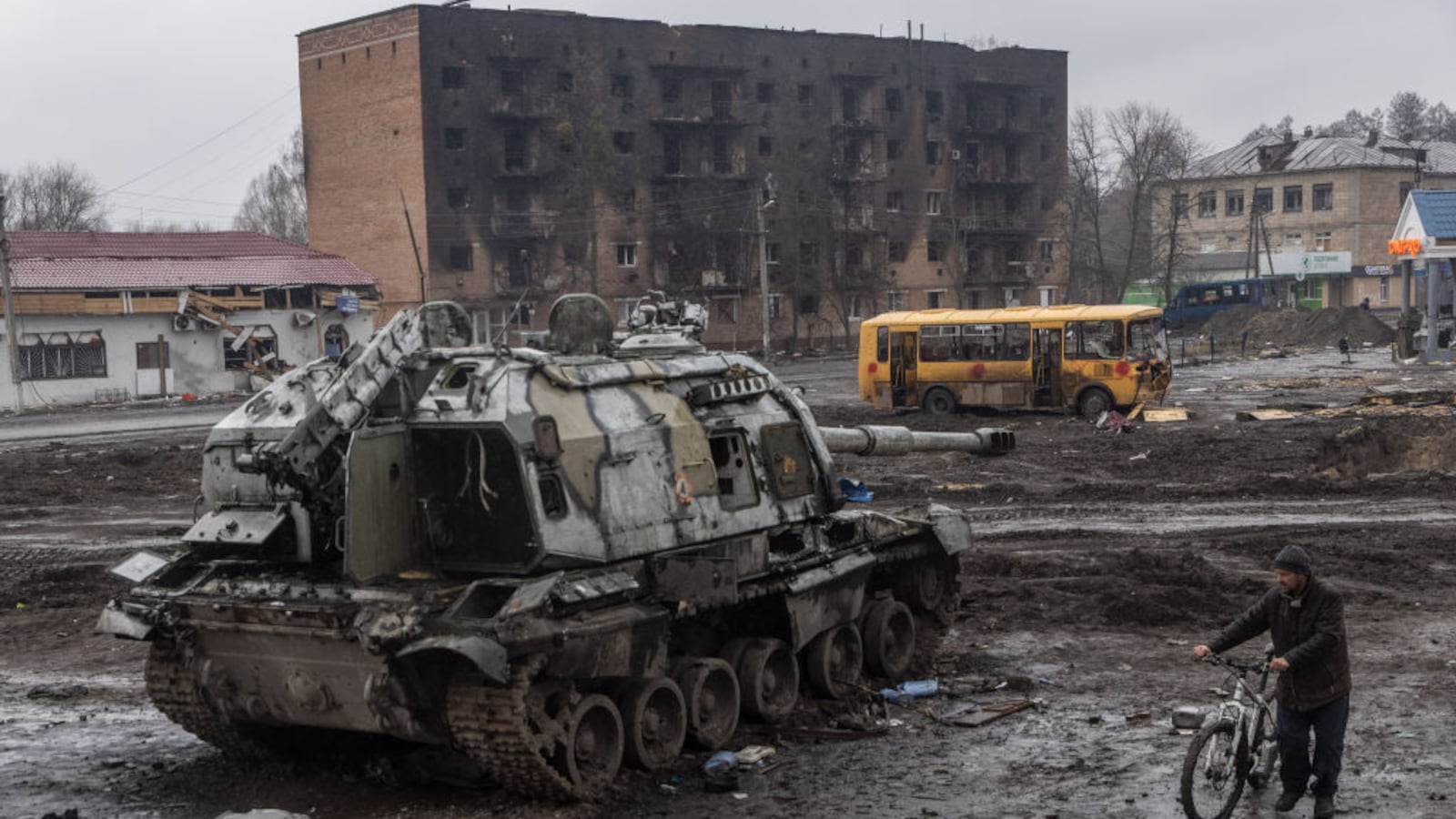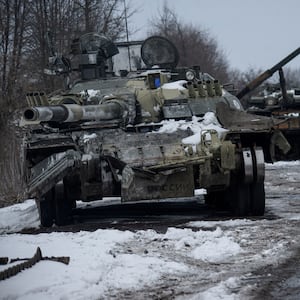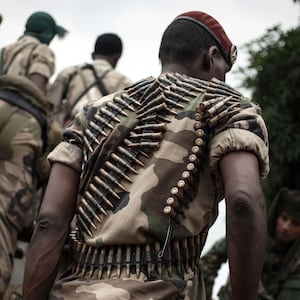Vladimir Putin “massively misjudged the situation” in ordering the invasion of Ukraine and surely knows just how poorly things are going for Russian forces even though his closest advisers are hiding the truth from him, according to the head of Britain’s spy services.
In a speech at the Australian National University in Canberra on Thursday morning, GCHQ director Sir Jeremy Fleming said the Russian leader’s “unprovoked and premeditated attack on Ukraine” has been “shocking in every sense of the word.” He also said Putin, a former KGB officer, was caught completely flat-footed by what he found.
“It’s clear he misjudged the resistance of the Ukrainian people,” Fleming said. “He underestimated the strength of the coalition his actions would galvanize. He underplayed the economic consequences of the sanctions regime. He overestimated the abilities of his military to secure a rapid victory. We’ve seen Russian soldiers—short of weapons and morale—refusing to carry out orders, sabotaging their own equipment and even accidentally shooting down their own aircraft.”
Throughout the past 36 days, Putin has consistently been misled by top Russian military and intelligence officials about the army’s progress in Ukraine, declassified U.S. intelligence has reportedly shown. During a stop in Algiers on Wednesday, U.S. Secretary of State Antony Blinken said Putin’s inner circle is not telling him the truth about the war and the true bite of economic sanctions on Russia’s economy. An unnamed senior U.S. intelligence official told the Associated Press that Putin’s advisers are “scared” to give him an accurate version of events, and that those deceiving him include Defense Minister Sergei Shoigu.
However, Fleming said on Thursday, “what’s going on and the extent of these misjudgments must be crystal clear to the regime.”
“The great irony is, of course, that through his actions, Putin has brought upon himself exactly what he was trying to avoid—a Ukraine with a renewed sense of nationhood, a NATO that is more united than ever, and a global coalition of nations that condemn his actions,” Fleming told the audience.
Because the invasion is only about a month old, it is “far too early to confidently draw out all the implications of this crisis,” said Fleming. But he discussed some notable aspects of Putin’s war that have so far stood out to him.
For starters, Russia’s disinformation game is strong.
“Their aim is to promulgate disinformation,” Fleming continued. “To sow mistrust in the evidence and to amplify false narratives. It’s also to make sure that the real picture of what’s going on doesn’t get exposed inside Russia… We know Putin’s campaign is beset by problems—low morale, logistical failures and high Russian casualty numbers. Their command and control is in chaos. We’ve seen Putin lie to his own people in an attempt to hide military incompetence. And all of that means, he seeks brutal control of the media and access to the internet, he seeks the closing down of opposition voices, and he’s making heavy investment in their propaganda and covert agencies.”
Again, Putin badly misjudged Ukraine’s fierce resistance, Fleming went on. Ukrainian President Volodymyr Zelensky has become a global beacon of democracy, with support from governments and Bono alike. Businesses worldwide have pulled their operations out of Russia due to the invasion, and tech firms have rushed to help Ukraine stay connected to the outside world.
At the same time, Russia is padding out its ranks with foreign fighters and mercenaries from private contractors like the Wagner Group, which is closely linked to Putin confidant Yevgeny Prigozhin.
“They are looking at relocating forces from other conflicts and recruiting new fighters to bolster numbers,” Fleming said in his speech. “These soldiers are likely to be used as cannon fodder to try to limit Russian military losses.”
Russia has long been hostile toward NATO, viewing the allied coalition as an existential threat. And yet the invasion of Ukraine has “certainly galvanized” NATO members as well as non-members such as Japan and Australia which have been “leaning in,” in Fleming’s words.
“It’s also showing, in stark relief, those countries that choose to either support Putin or abstain from making a choice,” he said. “And those choices will affect the global order and our national securities for decades to come.”
Putin, for now, is sticking to his plan for better or worse, according to Fleming, who described it as mostly worse. Now the fear is that Russia shifts to Putin’s “Plan B,” which Fleming warned will be “more barbarity against civilians and cities.”
“Clearly, he plays by different moral and legal rules,” he said. “Far too many Ukrainians and Russians have already lost their lives. And beyond this toll, many, many more have had their lives shattered. The UN estimate that in just over a month, more than 10 million people have already fled their homes. It’s a humanitarian crisis that need never have happened. And it’s not over yet.”








